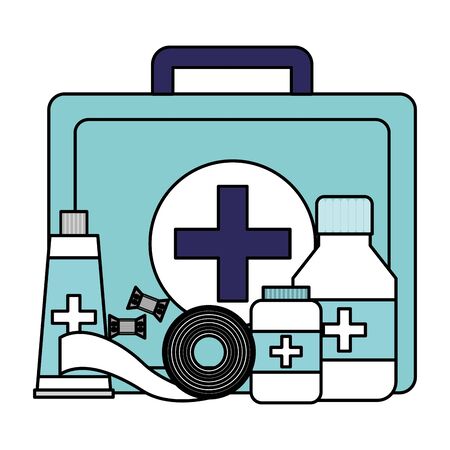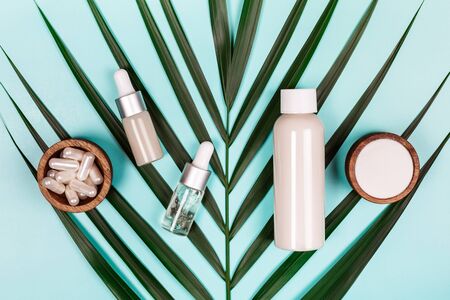Introduction: Why Skin Hydration Matters
When it comes to achieving healthy, glowing skin, hydration is a top priority for many Americans. Our skin is the body’s largest organ, and its appearance often reflects our overall well-being. In the United States, concerns like dry skin, premature aging, and maintaining a youthful look are common topics in beauty routines and wellness conversations. Proper hydration is essential not only for comfort but also for supporting the skin’s natural barrier, elasticity, and resilience against environmental stressors. As people search for effective solutions to combat dryness and the visible signs of aging, understanding what impacts skin hydration becomes increasingly important. This sets the stage for examining how everyday substances—alcohol, caffeine, and sugar—can influence the skin’s moisture balance and overall health.
Alcohol and Skin: Effects on Hydration and Appearance
Alcohol is a staple in many American social settings, from backyard barbecues to happy hours and festive holiday parties. However, while the cultural norm of social drinking can foster connection, it can also have notable impacts on skin hydration and appearance. When you consume alcohol, your body increases urine production—a process that leads to overall dehydration, including within your skin. Dehydrated skin may appear dull, flaky, or even accentuate fine lines and wrinkles.
Below is a breakdown of how alcohol affects skin hydration and why these effects matter for both health-conscious consumers and beauty enthusiasts:
| Alcohol Effect | Impact on Skin | Cultural Example |
|---|---|---|
| Dehydration | Loss of moisture, leading to dryness and flakiness | Frequent “bottomless brunches” with mimosas or cocktails |
| Dullness | Lack of radiance, tired-looking complexion | Happy hour after work as a routine stress-reliever |
| Inflammation | Redness, puffiness, potential for breakouts or sensitivity | Weekend parties or tailgating before sports events |
The prevalence of alcohol-centric events in the U.S. often normalizes regular consumption, but this habit can undermine efforts toward healthy, hydrated skin. While occasional drinks are unlikely to cause long-term damage, chronic overconsumption may make it difficult for your skin to retain essential moisture. Dermatologists frequently advise balancing each alcoholic beverage with a glass of water—a simple hack embraced by many Americans aiming to mitigate these effects during nights out or celebrations.

3. Caffeine and Your Complexion: Friend or Foe?
The relationship between caffeine and skin hydration is a hot topic, especially in the U.S., where coffee culture is deeply ingrained in daily life. From the morning rush to grab a venti cold brew at Starbucks to the afternoon pick-me-up from an energy drink, Americans consume caffeine in various forms—and often in significant amounts. But how does this widespread habit impact your skin’s moisture levels? There’s a longstanding belief that caffeine, due to its diuretic effect, can leave your skin parched. However, recent research suggests that moderate caffeine intake may not be as dehydrating as once thought, especially when consumed alongside adequate water. Still, excessive consumption—think several cups of coffee or multiple energy drinks daily—can potentially contribute to overall dehydration, which may manifest as dry, lackluster skin. Additionally, high-caffeine beverages often come loaded with sugar or artificial additives, compounding their negative effects on skin health. It’s also worth noting that some skincare products tout topical caffeine for reducing puffiness and improving appearance, adding another layer of complexity to the caffeine-skin relationship. In essence, while enjoying your morning cup of joe isn’t likely to sabotage your skin’s hydration alone, moderation and mindful consumption are key for maintaining that healthy glow.
4. Sugar’s Sweet Downside: Dehydration and Inflammation
When it comes to skin hydration, sugar is often the hidden culprit behind many common skin concerns. The standard American diet—often called the “SAD” diet—is laden with added sugars and processed foods that have a direct impact on the health and appearance of our skin. Consuming high amounts of sugar can lead to dehydration and inflammation, two major factors that undermine skin moisture and resilience.
The Science Behind Sugar and Skin Hydration
Added sugars, especially those found in sodas, pastries, and processed snacks, increase blood sugar levels rapidly. This spike triggers an insulin response that can promote inflammation throughout the body—including the skin. Chronic inflammation breaks down collagen and elastin, essential proteins for keeping skin firm and hydrated. Moreover, excess sugar molecules bind to collagen through a process known as glycation, making skin stiffer, drier, and more prone to wrinkles.
How Processed Foods Contribute to Dehydration
Processed foods are not only high in added sugars but also frequently contain sodium and unhealthy fats. These ingredients disrupt your body’s natural water balance, leading to increased water loss from cells—including skin cells. Over time, this can result in dryness, dullness, and even exacerbate conditions like eczema or acne.
Impact of Dietary Choices on Skin Hydration
| Dietary Factor | Effect on Skin Hydration | Inflammatory Response |
|---|---|---|
| High Added Sugars | Reduces moisture retention; promotes dryness | Triggers chronic inflammation via glycation |
| Processed Foods (chips, cookies) | Leads to cellular dehydration due to high sodium/sugar content | Increases inflammatory markers in the skin |
| Whole Foods (fruits, veggies) | Supports optimal hydration with natural water content and antioxidants | Lowers inflammation; supports skin barrier function |
Popular U.S. Dietary Trends: The Impact on Skin Health
The rise of low-carb and ketogenic diets in the U.S. has brought renewed attention to sugar intake. While these trends often reduce added sugars—which can help improve skin hydration—they may also lead to decreased consumption of fruits and certain hydrating foods if not balanced properly. On the other hand, plant-based diets rich in whole grains, fruits, and vegetables generally support better hydration and lower inflammation thanks to their higher water content and antioxidants.
5. Everyday Choices: Balancing Consumption for Healthier Skin
When it comes to maintaining optimal skin hydration, everyday lifestyle choices can make a significant difference. For many Americans, alcohol, caffeine, and sugar are part of daily routines—think morning coffee runs, celebratory drinks after work, or sweet treats as comfort food. While these habits are deeply ingrained in American culture, moderation is key to supporting your skin’s health.
Moderation Over Elimination
Completely cutting out alcohol, caffeine, or sugar isn’t realistic—or necessary—for most people. Instead, focus on mindful consumption. Opt for a single glass of wine instead of several, or enjoy coffee without added syrups and sugars. If you have a sweet tooth, swap out processed snacks for naturally sweet fruits like berries or apples that come with added vitamins and hydration benefits.
Hydration-Friendly Habits
Counteract the dehydrating effects of these substances by prioritizing water intake. The familiar advice to carry a reusable water bottle can go a long way—aim for at least eight 8-ounce glasses per day, adjusting for activity level and climate. Infusing your water with lemon or cucumber not only boosts flavor but also adds antioxidants that benefit your skin.
Smart Swaps and Daily Routines
Incorporate small adjustments into your daily routine: pair every cup of coffee with a glass of water, choose seltzer over soda when craving something fizzy, and opt for mixed drinks with low-sugar mixers if you drink alcohol socially. These simple swaps are easy to implement and can help minimize the impact of dehydrating ingredients on your skin.
Cultural Cues: Socializing Without Sacrifice
Social events often revolve around drinks and sweets in American culture. Consider offering hydrating alternatives like herbal iced tea or sparkling water at gatherings. If you’re out with friends, try pacing alcoholic beverages with non-alcoholic options—it’s a common practice among health-conscious Americans who want to stay social while supporting their well-being.
Listen to Your Body
Your skin often reflects your overall hydration status. Pay attention to signs such as dullness, tightness, or flakiness, which may indicate dehydration. Adjust your habits accordingly—adding extra servings of water-rich foods like watermelon or cucumbers during hot summer months is a practical step familiar to many Americans.
By making intentional choices and embracing hydration-friendly habits within the context of American daily life, you can enjoy your favorite beverages and treats without sacrificing healthy, glowing skin.
6. Expert Insights: Dermatologist Recommendations
Leading U.S.-based dermatologists and nutritionists are unanimous: what you drink and eat has a measurable impact on your skin’s hydration levels. Dr. Anna Guanche, a board-certified dermatologist in California, cautions that “alcohol is a diuretic, so it drives water out of the body, leaving skin looking dull and dehydrated.” She recommends limiting alcohol intake and always pairing drinks with a glass of water to counteract moisture loss.
For caffeine lovers, experts like Dr. Doris Day, a New York-based dermatologist, emphasize moderation. While caffeine in coffee or tea can have antioxidant benefits, high consumption may mildly dehydrate the skin for some individuals. Dr. Day suggests monitoring how your skin reacts and balancing caffeine with plenty of hydrating fluids.
When it comes to sugar, nutritionists such as Keri Glassman, MS, RD, warn that excessive sugar intake can lead to glycation, a process that damages collagen and elastin fibers—essential for skin elasticity and hydration. “Reducing added sugars helps maintain the skin’s ability to retain moisture,” says Glassman.
Across the board, American experts recommend prioritizing a balanced diet rich in fresh fruits, vegetables, lean proteins, and healthy fats—key for supporting both internal hydration and the skin’s natural barrier function. They also urge consumers to read beverage labels carefully; many popular drinks marketed as ‘healthy’ are packed with hidden sugars or dehydrating ingredients.
The consensus? Moderation is essential. Swapping one sugary soda or cocktail for an infused water or herbal tea can make a visible difference in your complexion over time. If you notice increased dryness or irritation after drinking certain beverages, dermatologists suggest adjusting your habits—and never underestimate the power of daily sunscreen and moisturizer alongside mindful nutrition.
7. Conclusion: Takeaways for Healthier, Hydrated Skin
Understanding the impact of alcohol, caffeine, and sugar on skin hydration is essential for Americans striving to maintain healthy, radiant skin in a fast-paced, convenience-driven society. Our analysis highlights that excessive intake of these substances can compromise the skin’s natural moisture barrier, leading to dryness, irritation, and premature aging. However, making mindful choices can help counteract these effects. Key takeaways include moderating alcohol consumption—especially during social events and weekends—opting for lower-caffeine beverages or alternating with water, and being conscious of hidden sugars in processed foods and drinks. To support optimal hydration, prioritize drinking plenty of water throughout the day, incorporate antioxidant-rich fruits and vegetables into your diet, and use topical moisturizers suited to your skin type. Small changes in daily routines—like swapping a second cup of coffee for herbal tea or choosing unsweetened snacks—can cumulatively make a significant difference. By taking these actionable steps within the framework of typical American lifestyle habits, individuals can achieve more resilient, hydrated skin while supporting their overall well-being.


